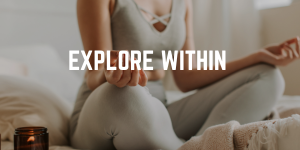In today’s digital age, we spend countless hours in front of screens — from smartphones and tablets to laptops and LED TVs. This screen time exposes our skin to artificial blue light, also known as High-Energy Visible (HEV) light. Recent research suggests that prolonged exposure to blue light may accelerate signs of skin aging, such as fine lines, pigmentation, and decreased skin elasticity. As a result, blue light glasses have emerged not only as an eye protection tool but also as a potential defense against premature skin aging.
This article explores how blue light affects your skin, the science behind blue light glasses, and whether they can truly help prevent skin aging.
What Is Blue Light?
Blue light is part of the visible light spectrum, with wavelengths between 400–490 nanometers. It’s naturally emitted by the sun but also artificially produced by digital screens and energy-efficient lighting (like LEDs and fluorescents). While blue light during daylight hours helps regulate our circadian rhythm and boost alertness, prolonged artificial exposure—especially at night—can have negative effects on both your eyes and your skin.
How Does Blue Light Affect Your Skin?
Though less energetic than UV rays, blue light can penetrate the skin more deeply, reaching the dermis. Studies show that it may contribute to the following:
- Increased oxidative stress: This can damage skin cells and accelerate aging.
- Pigmentation: Blue light has been linked to hyperpigmentation, especially in darker skin tones.
- Collagen breakdown: Over time, blue light may contribute to the degradation of collagen and elastin, leading to sagging skin.
- Skin inflammation: Extended exposure may worsen skin conditions like rosacea and acne.
What Are Blue Light Glasses?
Blue light glasses are designed with special lenses that filter or block blue light from reaching your eyes. Originally marketed to reduce eye strain and improve sleep quality, some glasses now come with lenses that extend protection beyond the eyes—offering some shielding for the skin around the eyes, cheeks, and forehead.
| Feature | Benefit |
|---|---|
| Blue light filtering lens | Reduces exposure to HEV light |
| Anti-reflective coating | Minimizes glare, improves screen clarity |
| UV protection | Adds an extra layer of defense against aging |
| Fashionable frames | Can be worn all day, doubling as accessories |
Can Blue Light Glasses Really Prevent Skin Aging?
Blue light glasses provide localized protection by shielding the areas of your face they cover—primarily the eye region. This can help prevent:
- Crow’s feet and fine lines around the eyes
- Hyperpigmentation in the eye sockets or upper cheeks
- Puffiness and inflammation caused by digital eye strain
However, it’s important to note that the glasses alone don’t offer full-face protection. To effectively combat skin aging caused by blue light, it’s best to combine glasses with a broader skincare strategy.
Comprehensive Blue Light Protection Routine
To maximize your skin defense against blue light damage, consider incorporating the following practices:
1. Use Antioxidant-Rich Skincare
Ingredients like vitamin C, niacinamide, and resveratrol help neutralize free radicals generated by blue light exposure.
2. Apply Sunscreen Indoors
Many modern sunscreens are formulated to protect against both UV and HEV light. Look for products labeled “broad-spectrum” or containing iron oxides for blue light protection.
3. Limit Screen Time
Try using apps that monitor and limit your screen time, especially before bedtime.
4. Turn on Night Mode
Most devices now have a “night shift” or “blue light filter” mode, which reduces HEV light emission.
5. Consider Supplements
Skin supplements that support collagen production, hydration, and cellular repair can help combat signs of aging. For example, some consumers exploring skincare also check out Biotin Gummies for Nail Strength Reviews to evaluate overall supplement efficacy—though biotin primarily supports hair and nail health, not skin.
Who Should Wear Blue Light Glasses?
Blue light glasses can benefit anyone who spends more than 3–4 hours a day in front of screens. However, they are especially helpful for:
- Remote workers and students
- Gamers and digital creatives
- Night-shift employees
- People with photo-sensitive skin or rosacea
How to Choose the Right Pair
When selecting blue light glasses, consider the following features:
| Criteria | Details |
|---|---|
| Lens clarity | Ensure lenses don’t distort color or vision |
| Blocking percentage | Look for 30–50% blue light filtering |
| Frame fit | Choose a frame that sits snugly for better skin coverage |
| Certification | Make sure the glasses meet optical safety standards |
Myths About Blue Light Glasses and Skin Aging
Myth 1: Blue light glasses protect your entire face.
Reality: They only shield the areas covered by the glasses. You still need skincare and other protection for full-face coverage.
Myth 2: Only UV light causes skin aging.
Reality: Blue light, while less intense, also contributes to oxidative stress and premature aging over time.
Myth 3: All blue light glasses are created equal.
Reality: Quality varies. Cheaper versions may offer minimal or no actual blue light protection.
FAQs About Blue Light and Skin Aging
Q1: Is blue light from screens as harmful as sunlight?
No. While both emit blue light, screens produce it at a much lower intensity. However, the extended duration of exposure makes it a concern.
Q2: Can I wear blue light glasses all day?
Yes. They are designed for daily use and are safe to wear all day, especially during screen-heavy periods.
Q3: Do blue light glasses help reduce dark circles?
They can reduce strain and puffiness around the eyes, which may make dark circles less noticeable over time.
Q4: Do I need sunscreen if I wear blue light glasses?
Yes. Glasses protect only part of your face. A broad-spectrum sunscreen is essential for complete protection.
Q5: Are there skincare products made specifically for blue light protection?
Yes. Many modern sunscreens and serums now include HEV-light-blocking ingredients like iron oxides and antioxidants.
Final Thoughts
Blue light exposure from digital devices is an unavoidable part of modern life—but that doesn’t mean we’re defenseless. Blue light glasses serve as a valuable tool in your anti-aging arsenal, particularly for protecting the delicate eye area from potential damage. For best results, combine glasses with antioxidant-rich skincare, screen-time management, and daily sunscreen use.
While the beauty industry continues to innovate with blue light protection in skincare, don’t underestimate the power of simple lifestyle changes. Small habits—like adjusting your device settings, choosing better lighting, and using high-quality glasses—can go a long way in preserving your skin’s health and youthfulness.











